Surprising Hacks To Stop A Nosebleed Fast!
Nosebleeds appear to be fairly harmless, but that does not make them any less inconvenient or annoying. A nosebleed often requires immediate attention and forces individuals to stop whatever they are doing to stop the flow of blood. Due to their location, nosebleeds can be one of the messiest places from which one can bleed. Some nosebleeds can even begin spontaneously, making them especially difficult to contain. Luckily, there are some hacks individuals can learn to stop nosebleeds quickly and easily.
Stand Or Sit Up Straight And Lean Forward
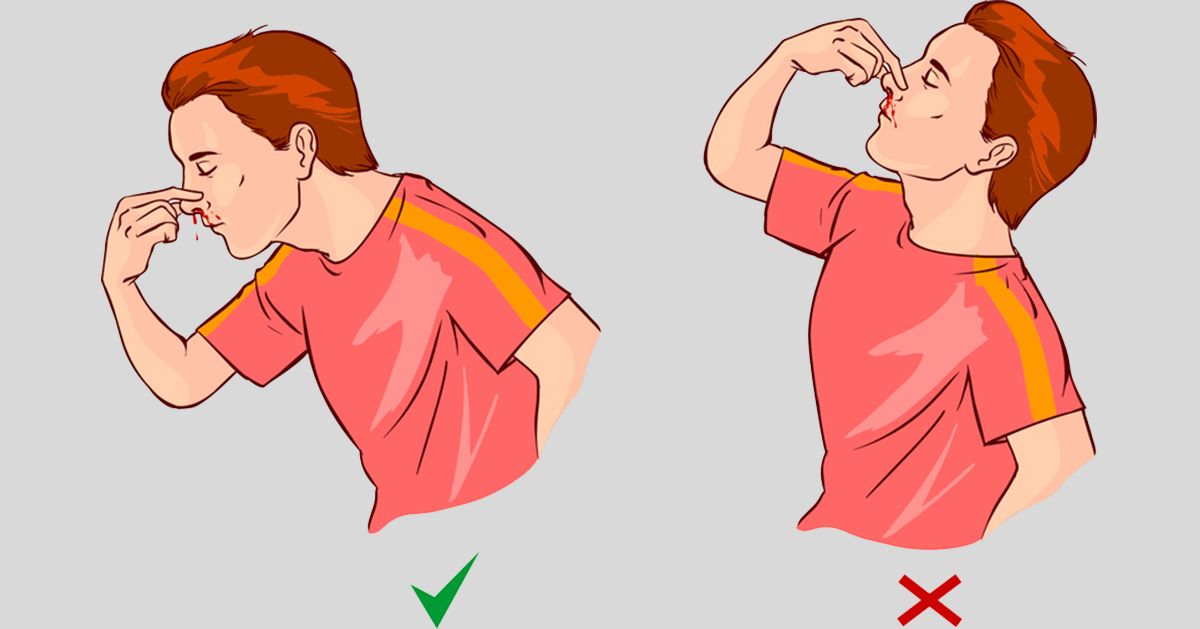
Blood flow is affected by gravity like everything else. Since nosebleeds occur in one of the highest points on the body, it is important to stand or sit up straight in the event of a nosebleed. Doing so makes it slightly harder for blood to flow to the nose, which can help staunch the bleeding. Leaning slightly forward also helps relieve nosebleeds, allowing all the blood to drain out quickly as opposed to flowing back into the nose where it can clot or flow out again. Individuals should also not tilt their head back as this can cause the blood to run down the back of the throat, which then can be swallowed, and can result in the blood irritating the stomach or inducing vomiting. Patients should spit out any blood that gathers in their mouth and throat rather than swallowing it.
Pinch The Soft Part Of The Nose
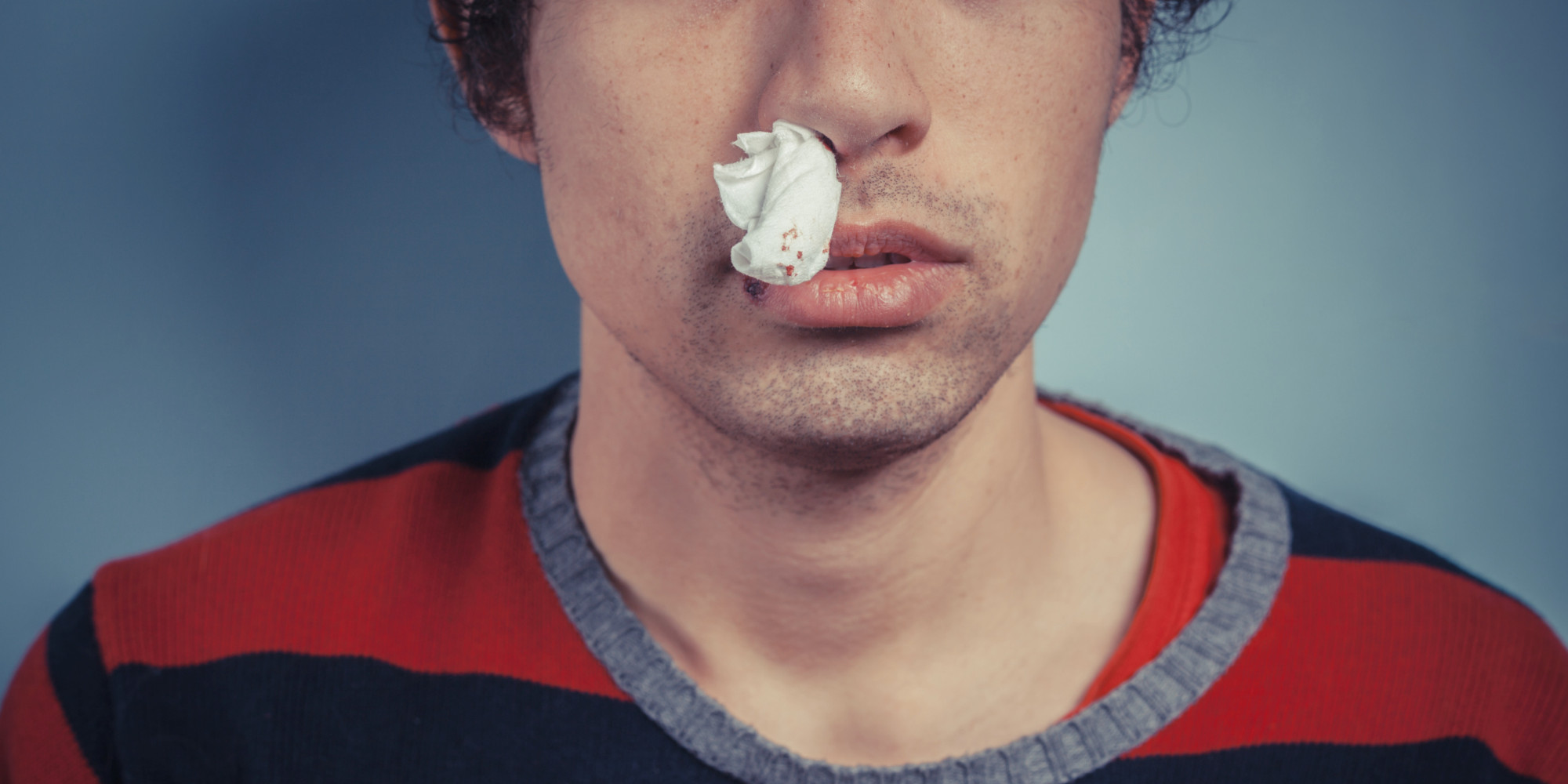
When individuals experience nosebleeds, one of the most common reactions is to pinch the nose. Clinical trials have indeed shown that pinching the nose can help restrict blood flow and shorten the duration of nosebleeds when done correctly. Individuals should use their thumb and forefinger to firmly pinch the soft cartilaginous parts of the nose just below the bridge and not the hard, bony parts. Nosebleeds usually occur in the soft part of the nose, and patients can try spraying the nose with a medicated nasal spray before applying pressure to the soft part to help stop the bleeding. If the bleeding has not stopped after twenty minutes of pinching the nose, medical help should be sought.
Apply Ice To The Nose And Cheekbones

Applying ice is one of the most common ways to restrict blood flow, which is why ice packs are commonly applied to bruises and other cutaneous injuries. In the event of a nosebleed, ice can be applied directly to the nose or the cheek areas just to the sides of the nose. This can help constrict the blood vessels in and around the nose, shortening the intensity and duration of a nosebleed. Ice should not be applied directly to the skin, but should instead be wrapped in a thick plastic bag or cloth.
Use Sinus Spray
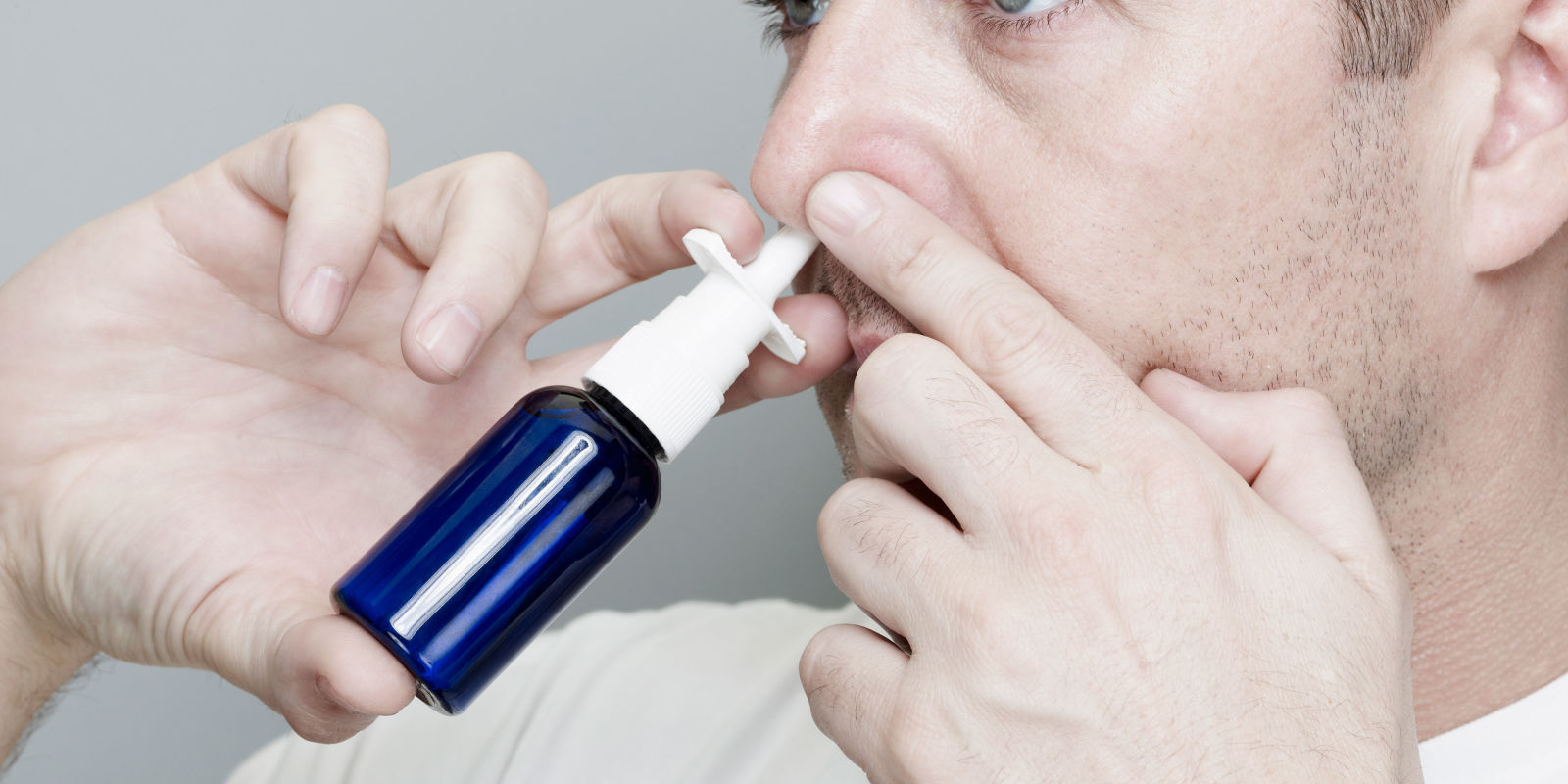
Many types of over-the-counter sinus sprays have been found to help relieve nosebleeds quickly. Sinus and nose spray medications containing Oxymetazoline, phenylephrine hydrochloride, or phenylephrine-DM-guaifenesin have all been proven to relieve the inflammation and bleeding associated with nosebleeds. However, if nosebleeds are a chronic problem, these sprays should not be used. Doctors recommend only using sinus sprays for a few days at a time, and if nosebleeds frequently occur, such as longer than a couple of days, it is a clear sign of a more serious problem. Individuals dealing with a nosebleed can also apply a thin layer of a saline or water-based nasal gel or an antiseptic nasal cream inside of their nose to stop the bleeding and provide some relief.
Drink Cayenne Pepper-Infused Water
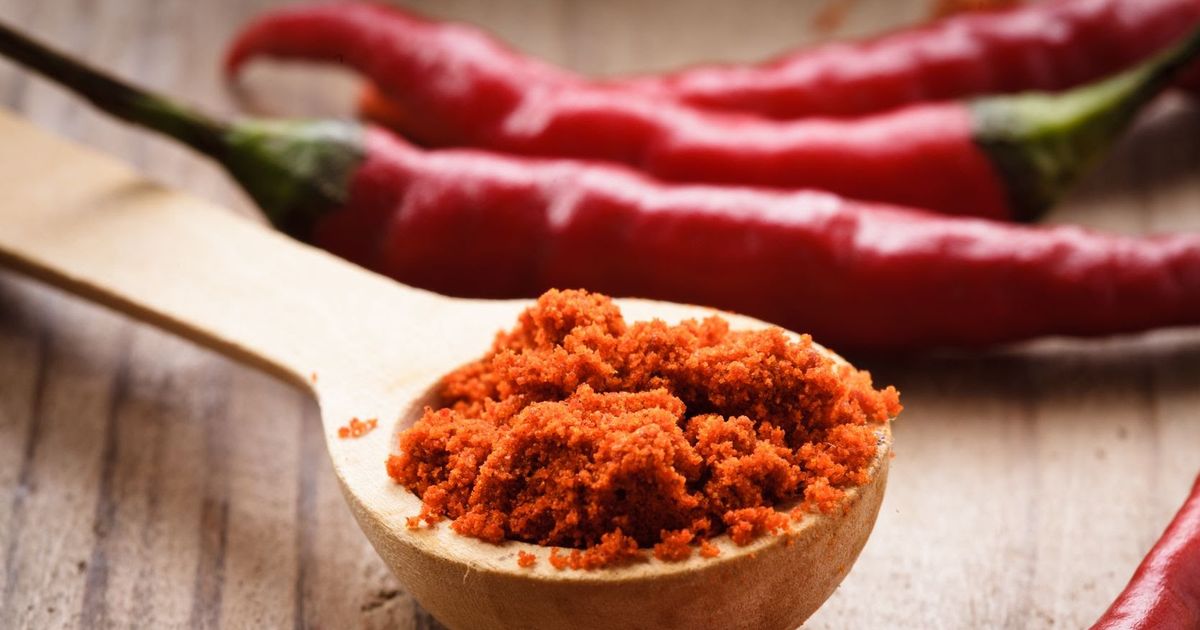
Cayenne pepper has been found to have surprising medicinal benefits. Aside from improving digestion, relieving migraines, detoxifying the body, and improving joint health, this spicy chili pepper can stop a nosebleed in its tracks. Drinking cayenne pepper-infused water is a common home remedy for nosebleeds. Mix ⅛ to one teaspoon of cayenne pepper in a glass of warm or hot water and drink it. The water should then be drunk slowly, without any blood from the nosebleed mixing into it. This home remedy works because the cayenne travels through the entire circulatory system and regulates the pressure in the hemorrhaging area, therefore resulting in reducing the pressure felt in the nose and stopping the blood flow.
Cutting Onions
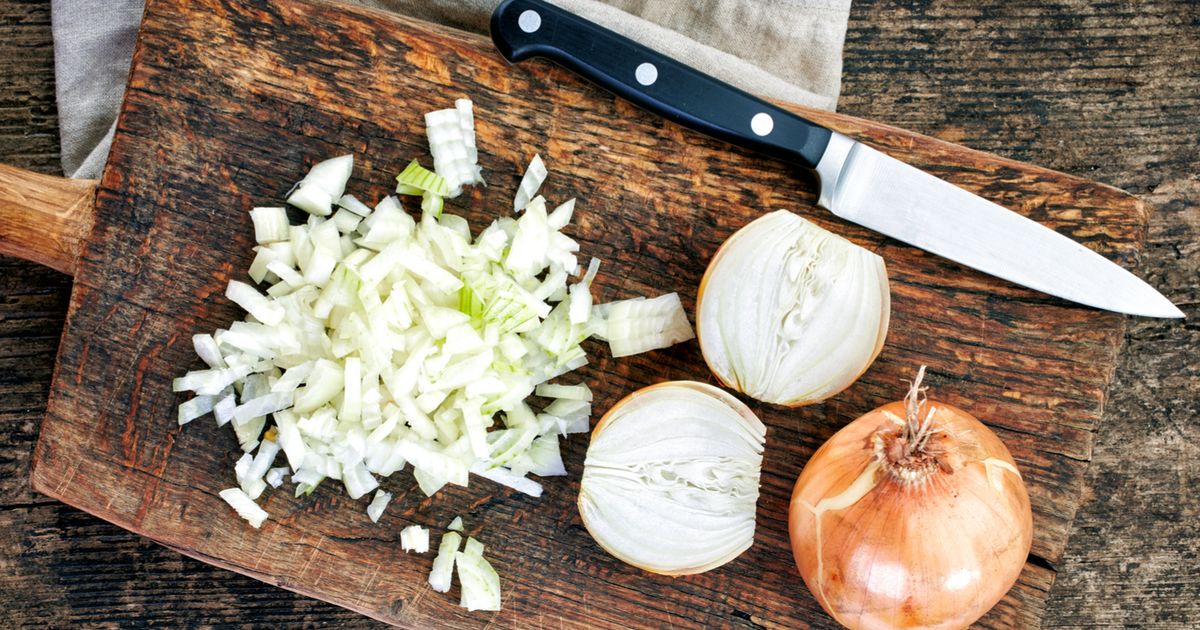
Onions are the bane of chefs’ existences everywhere due to the tear-inducing effects they cause when cut. Ironically, this same method can work wonderfully in one’s favor, and not just for creating fake tears when you need them. Cutting onions and breathing in the fumes has been found to stop nosebleeds in some individuals due to constricting the flow of blood in the blood vessels that line the nose. Alternatively, the juice from cut onions can be applied directly to the insides of the nostrils to help stop bleeding in its tracks.
What Causes A Nosebleed?
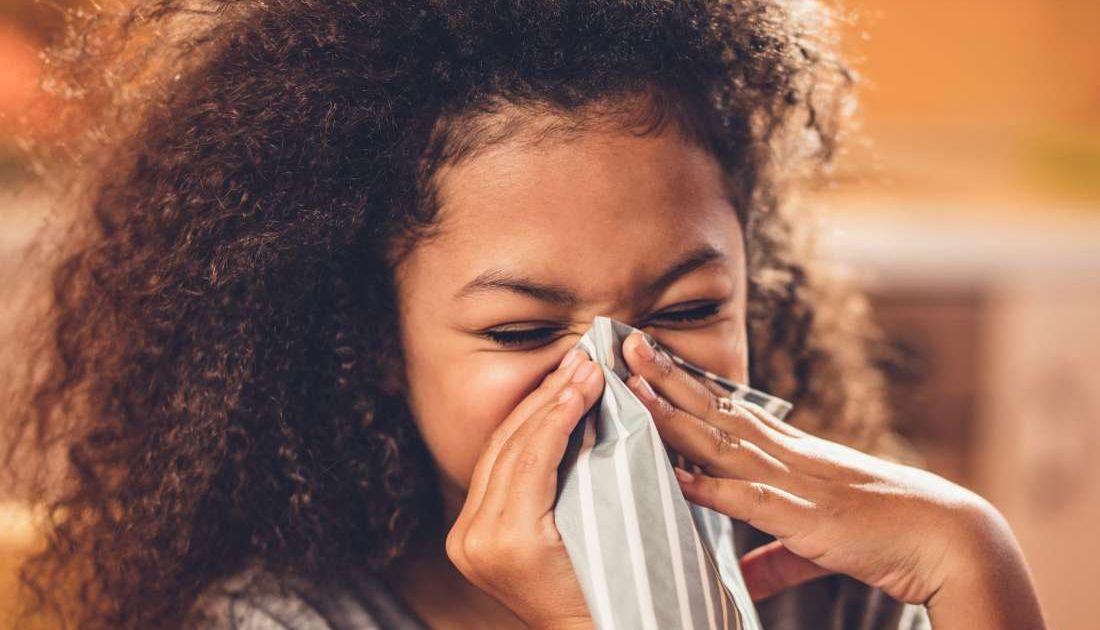
Considering the lining of the nose contains a vast amount of tiny blood vessels that lie close to the surface and are easily damaged, nosebleeds commonly occur due to the location of the nose on the face. The two most common causes of a nosebleed are dry air, as when the nasal membranes become dry, they are more susceptible to becoming infected, bleeding, and inflammation, and nose picking, or digital trauma.
Other causes of nosebleeds include acute sinusitis, allergies, Aspirin use, bleeding disorders, blood thinners, chemical irritants, chronic sinusitis, cocaine use, the common cold, a deviated septum, a foreign body in the nose, nasal sprays, nonallergic rhinitis, and trauma to the nose. Nosebleeds can develop in patients who have colds or chronic hay fever symptoms due to the nasal tissues becoming inflamed and irritated, and can also be caused by the overuse of allergy medicines due to their overdrying side effects.
Preventing Nosebleeds
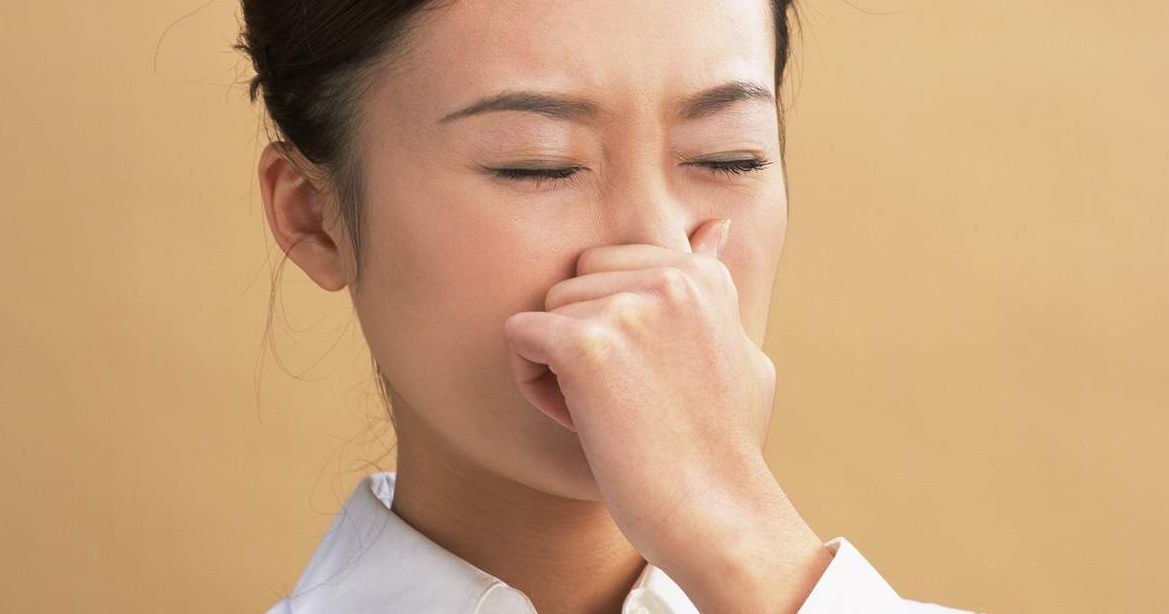
Once an individual has stopped a nosebleed, it is in their best interest to take proper precautions to prevent it from happening again. Prevention tips include avoiding forceful nose-blowing, avoid picking the nose, avoid lifting anything heavy or strenuous activities after a nosebleed, elevate the head on pillows while sleeping, and put a thin layer of saline or water-based nasal gel or an antiseptic nasal cream inside of the nose. Patients should also avoid using nonsteroidal anti-inflammatory drugs for three to four days after a nosebleed, and should use acetaminophen to relieve pain. Individuals should always be cautious and safe when using medicines and read and follow the instructions on the label. Individuals should also be cautious and not use nonprescription antihistamines, decongestants, or medicated nasal sprays without consulting a doctor first.
